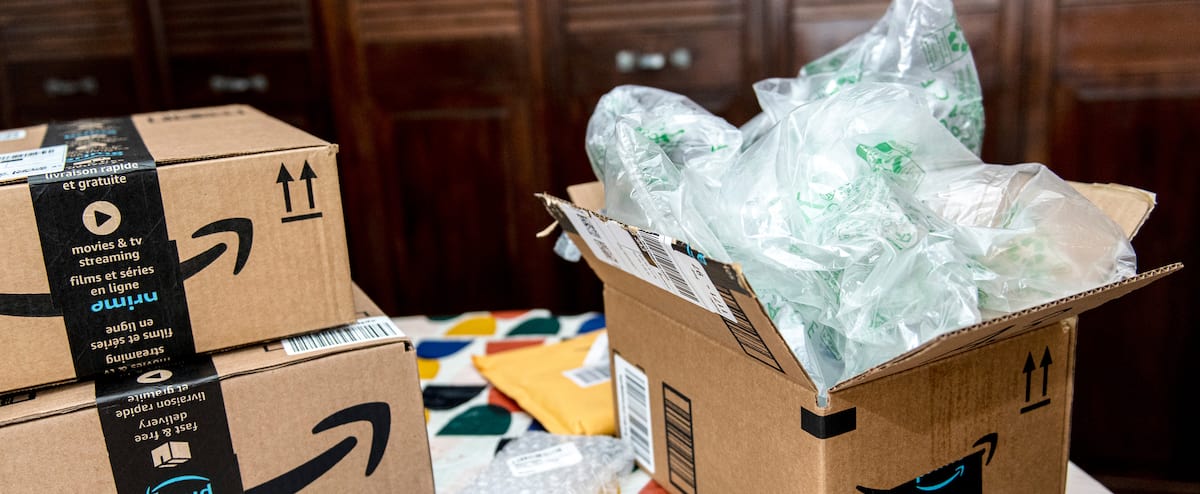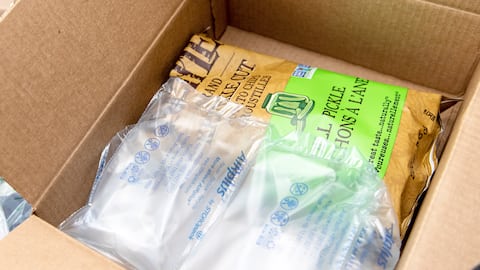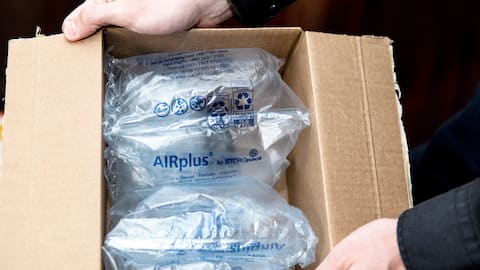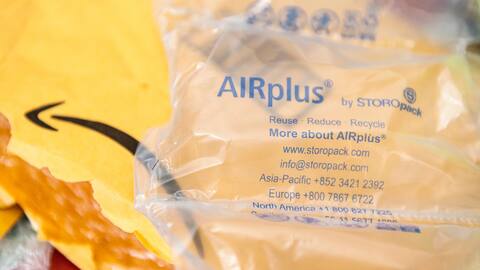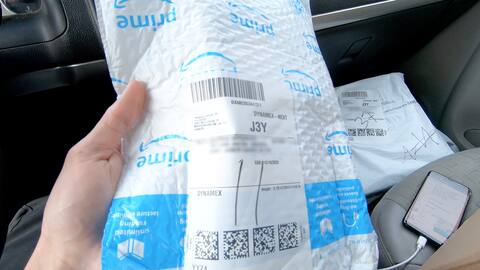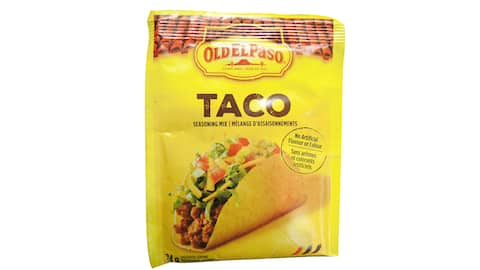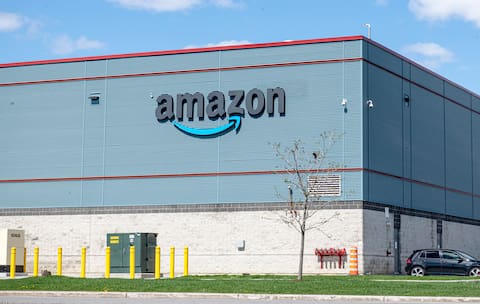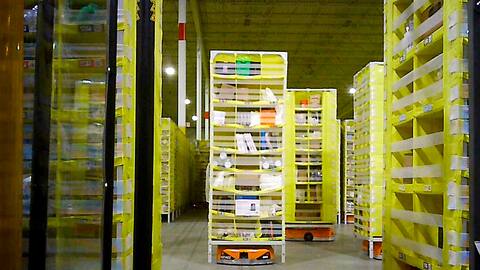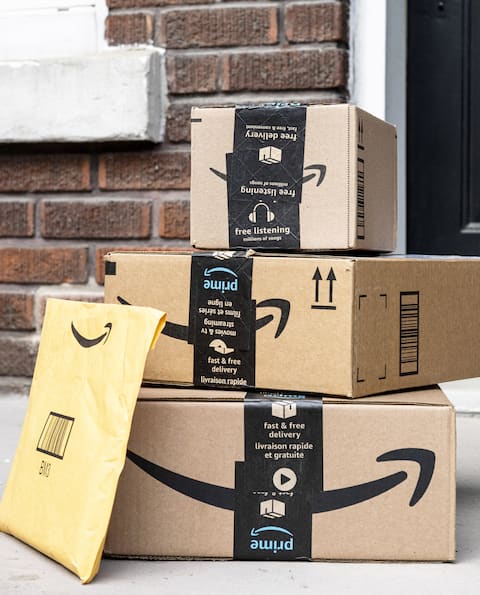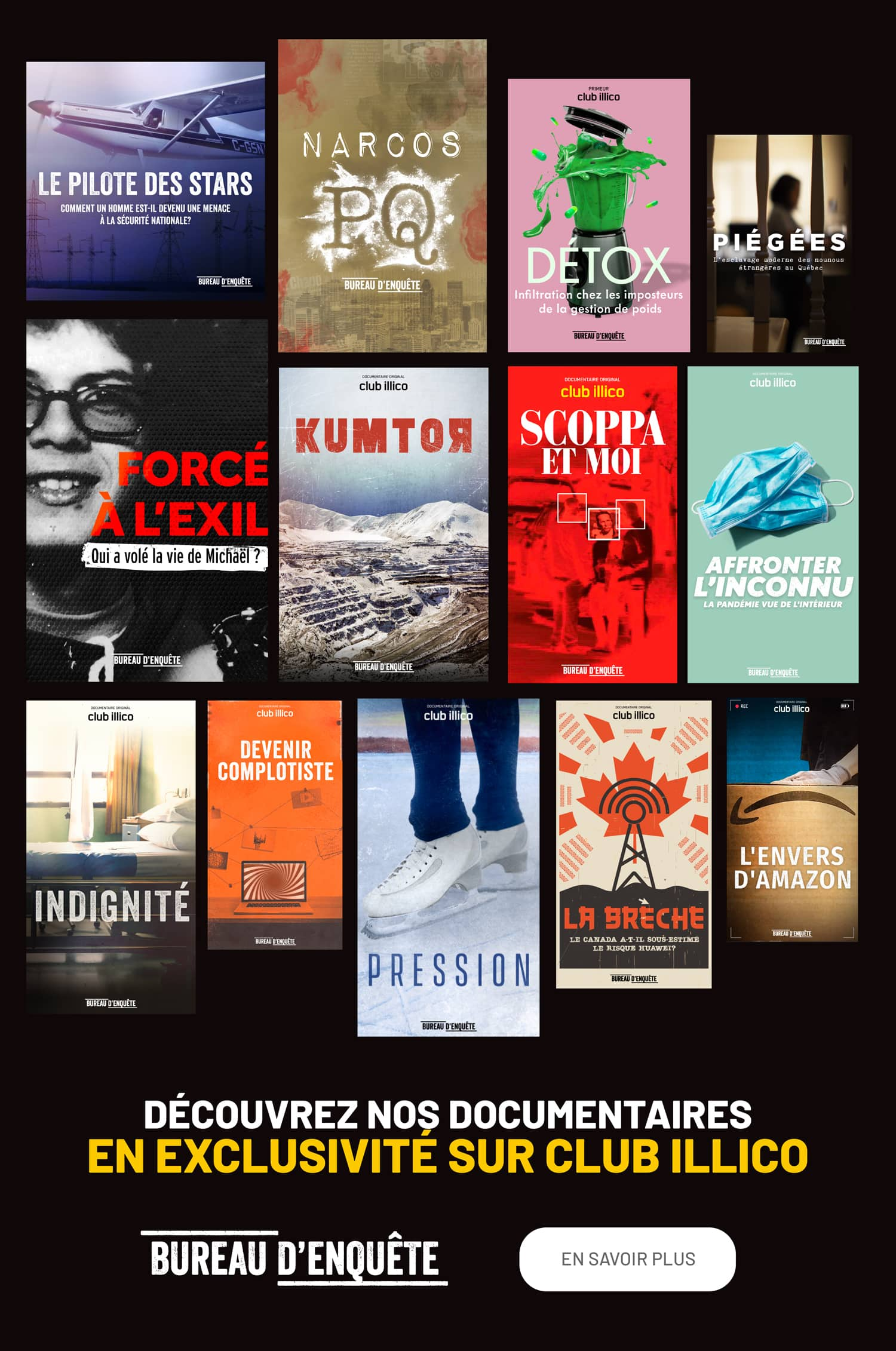Amazon employees are being encouraged to use too much plastic for packaging, journalist Dominique Cambron-Gault has discovered.
Ridiculous* says my colleague Bashir*, who fills a huge cardboard box with tiny plastic airbags.
At the bottom, a small aroma diffuser. A box can easily contain sixty. The object will be protected very well…
I also just made the same pack, twice, in less than five minutes. “Unbelievable,” Bashir continues.
At Amazon, it is the computer system that determines which box size to use. It often results in encapsulation of such anomalies.
“If the system tells you to put something big in a small box, it won’t fit, so you change the box.” But if the system tells you to put a small thing in a big box, you won’t change the box. you put more [coussins d’air]“Ibrahim, who gave me my training, explains.
- Hear from Claire Bourget, Director of the Academy for Digital Transformation
When I’m learning the basics of the bundle functionality, I’ve already been an “Amazonian” – the nickname for Amazon Partners – for 11 days.
But that’s really when I realized the extent of the transgression.
During my days as a packer, my environmental conscience sometimes takes charge and I change a few boxes that I consider unnecessarily large.
- Listen to journalist Dominique Cambron-Jules with Pierre Nantel
I then have to notify the system that I am deviating from its orders. Otherwise, an “error” will be entered in my performance log.
It’s going really fast…
But the pace of work is so fast that you cannot choose a box of the right size every time. There is a performance target to be achieved: 67 requests per hour.
“That’s a lot,” agrees Ibrahim, who is nonetheless one of Lachine’s most experienced packers.
Too much package, that’s too much plastic, and it’s hard to fathom the scales, Amazon is a giant.
According to a study by Oceana Canada, in 2019, Amazon produced enough airbags to rotate the planet 500 times.
“It’s a huge plastic footprint, which has an impact on the environment and the oceans. Seara Thurston, a spokeswoman for Oceana Canada, says in our documentary that Amazon, given its size, has the potential to make a difference. The opposite of amazon.
Amazon questions those results, pledging to use only a quarter of that plastic. But when Oceana asked Amazon to share its numbers, the multinational refused.
MI Thurston points out that air cushions are difficult to recycle.
When I pack your bags, I already know that. Amazon also seems to be well aware of this. In Lachine distribution center, there is no plastic recycling bin. There is recycling of cardboard and trash cans.
in the garbage
However, the machine that inflates the airbags often gets jammed. Meters of plastic film become unusable and therefore are thrown directly into the trash. I throw it in regularly during my days.
At Lachine, I also pack packages in paper envelopes lined with bubble wrap. These are not accepted at the Montreal recovery sorting centers, because they are two separate items glued together. In Quebec, they are.
“It puts a lot of pressure on the consumer to know what is recyclable and what is not,” Judge Sayara Thurston.
* Fake first names.
Solutions exist within Amazon to reduce plastic use, but they are slow to implement for cost reasons, a former employee believes.
After sneaking into an Amazon warehouse in Lachin, I ordered an aroma diffuser which I was told to pack in a very large box.
I wanted to test the company’s system to see if the casing was standardized.
To my surprise, the item did not arrive in a box, but in an envelope made entirely of paper.
“It’s effective, it works really well, and we’ve been recycling it for years,” says Sayara Thurston of Oceana Canada.
The Lachin Aroma diffuser did not arrive as this type of envelope was not used. He was from Kenosha, Wisconsin, a town halfway between Chicago and Milwaukee.
However, Amazon has no plans to phase out plastic any time soon.
“Plastic remains the lightest option with the lowest packaging carbon footprint,” the company says.
Greenwashing
Marin Costa worked for 17 years at Amazon’s headquarters in Seattle, between 2002 and 2020.
With the Amazon Employees for Climate Justice group, the UI design specialist wanted to fight from within so that the multinational would adopt more environmental practices. It hit a “brick wall”.
“If they can save money, they don’t look at the hidden costs, like the impact on the environment,” she laments. They continue to use plastic envelopes because they are not that expensive.”
Marin Costa points out that there are many green wash in amazon.
In 2019, following global climate markets, the company adopted the Climate Pledge, key principles to reduce carbon emissions.
“They renamed an arena in Seattle the ‘Climate Pledge Arena.’ It grabs attention and distracts us from the fact that they keep developing artificial intelligence to help fossil fuel companies extract more oil,” says M.I Costa.
She was fired in early 2020 for speaking out against the conditions of warehouse workers due to COVID-19.
Waltz, small envelope of spices
level 1
Made in the USA
Our taco seasoning mix is made in the USA. The envelopes are imported into Canada by a company in Mississauga, Ontario.
The second step
Sorted in Lachine . repository
The envelope arrives at the Lachine, where it is placed in the automated modules. When the consumer asks for it, I take it and put it in the trash.
Step 3
Send to the suburbs of Toronto
Lachine’s little spice envelope is left with other products to another Amazon warehouse, in the suburbs of Toronto, where it will be packed, alone or with other items.
Step 4
Shipped to North America
Once packaged in an Amazon box or envelope, the spice blend is delivered to the consumer, who may live anywhere in Canada and even the United States.
A simple envelope of spice can travel thousands of miles inside Amazon’s distribution system before it reaches your doorstep.
In Lachine, I often do an extension trans, i.e. moving products to other distribution centers.
I can pick up thousands of chests in one day that are going to the suburbs of Toronto.
There are popular products like the printer paper box or the taco seasoning wrapper.
This is a big brand name condiment, a product that can definitely be bought in Toronto. The Canadian distributor of this brand is based in Mississauga.
When I ordered this same product two months after I sneaked in, it came from the suburbs of Toronto.
distortions
This example well illustrates the distortions caused by Amazon’s distribution system, which operates globally. Products are constantly moved between distribution centers to speed up the delivery process.
“Amazon is in the process of replacing local distribution systems with a globalized system. That means transportation is more intense. This is a concern for the climate and the environment,” says Stacey Mitchell, associate director of the Institute for Local Self-Reliance.
The majority of orders I process at Lachine are for consumers in Ontario, where there are already several distribution centers.
After sneaking in, I ordered six products I’d been seeing regularly at Lachine. Only one request came from there, the rest from Ontario or the United States.
Having said that, a centralized system can be pretty good. For example, Amazon can combine two or three of your orders placed in a short time, thus avoiding trips.
But what matters is speed. “The pursuit of productivity is the holy grail at Amazon,” recalls Marin Costa, who has worked for 17 years at Amazon headquarters.
Amazon employee or ex-employee? Do you have any information? Contact our journalist confidentially at: [email protected] or at 514 257-1431.

“Total creator. Evil zombie fan. Food evangelist. Alcohol practitioner. Web aficionado. Passionate beer advocate.”

